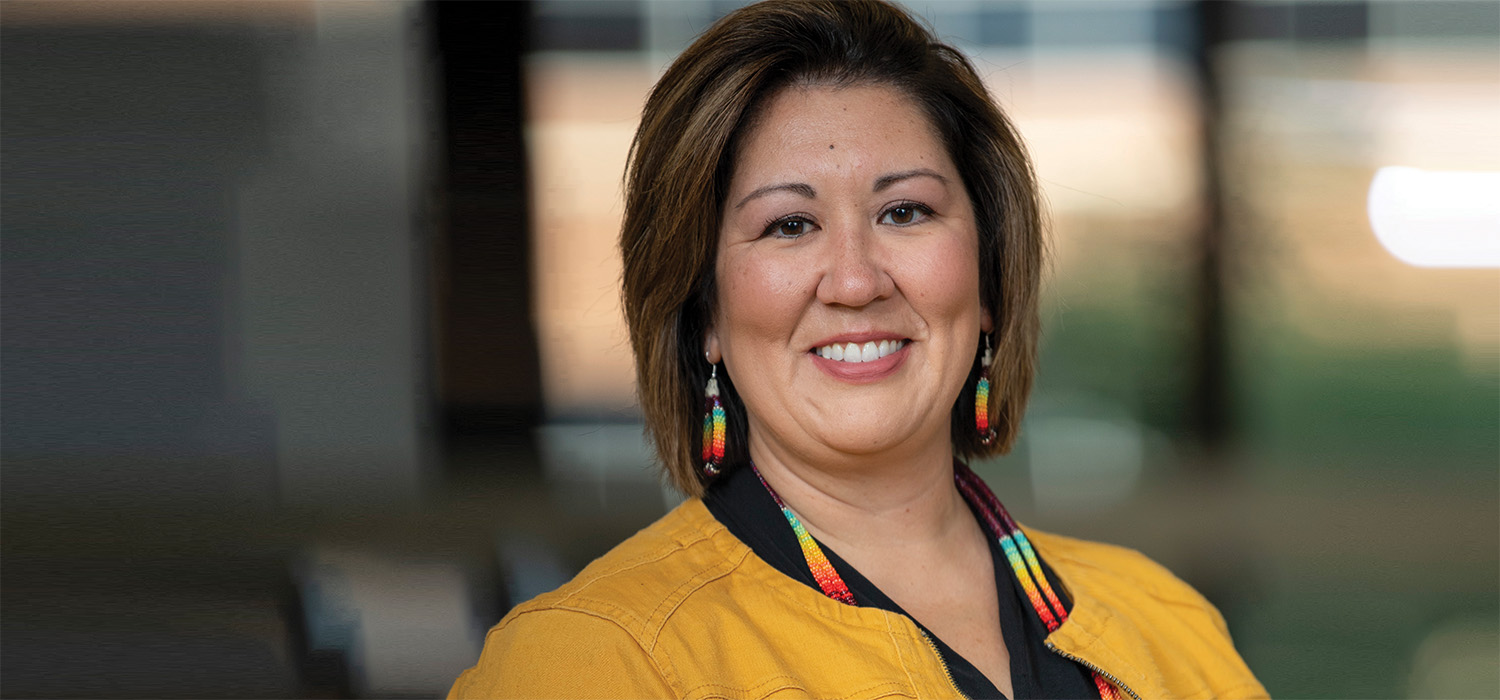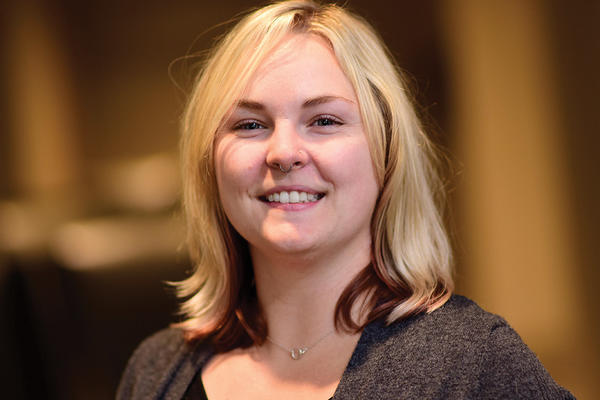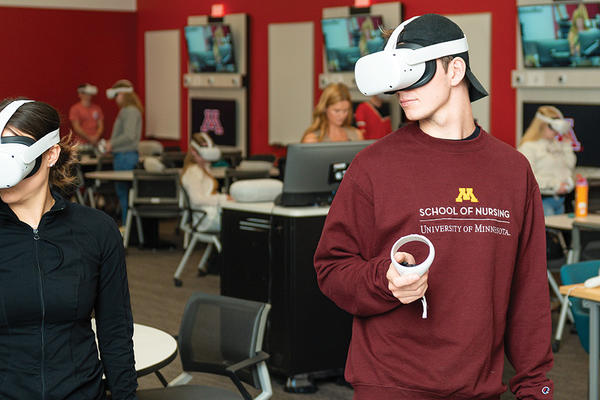Center launches to improve Indigenous health outcomes
November 13, 2023

Above: Misty Wilkie
The Center for Indigenous People, Health and Nursing of North America launched at the University of Minnesota School of Nursing to minimize health disparities to improve health outcomes for American Indian/Alaska Native (AI/AN) people, families and communities. It will build collaborative relationships with Tribal Nations, health care and academic institutions, federal and state agencies, and community organizations to increase the number of AI/AN nurses with graduate nursing degrees and develop evidence-based interventions and best practices.
“I see us as an ally, an advocate, a partner, in helping our Tribal communities accomplish their visions and goals for the health of their community,” says Misty Wilkie, PhD, RN, FAAN, a citizen of the Turtle Mountain Band of Chippewa Indians and inaugural director of the center.
AI/ANs have some of the highest disparities and poorest health outcomes of all racial or ethnic minority groups in the U.S. “We’re just not gaining any traction on improving those disparities. I believe it’s because we lack the nurses in place to help facilitate change,” says Wilkie, who also serves as the director of the school’s AI/AN Pathway program to increase the number of doctorally prepared Indigenous nurses.
Stakeholders have already expressed a need for a center and have said the School of Nursing is an ideal location because of its reputation and ability to implement research through various funding sources.
“The center is multi-focused and broad reaching so that it’s beyond recruiting and graduating Indigenous nurses. It’s an opportunity for us to right some wrongs that the institution has created. It’s going to take some time to build relationships and trust but there is great potential for beautiful outcomes when we work together toward a common goal,” says Wilkie.
She is currently establishing an advisory board, which will consist of local and national leaders with knowledge of AI/AN social, cultural, health and workforce issues, to help guide the center. The executive team includes Professor Margaret Moss, PhD, JD, RN, FAAN, a citizen of the Three Affiliated Tribes, and Clinical Associate Professor Lisa Martin, PhD, RN, PHN, AHN-BC, FAAN, a citizen of the Lac Du Flambeau Band of Lake Superior Chippewa Indians. “Each of the Indigenous faculty have our own area of expertise that will help fulfill the mission and vision of the center,” says Wilkie.
Initially the center will focus on establishing connections with the 11 Tribal Nations in Minnesota and then expand farther out.
“We have a rich Indigenous culture in the state of Minnesota,” says Wilkie. “The opportunities are great for us to build better Tribal communities to help in any way that we can.”


